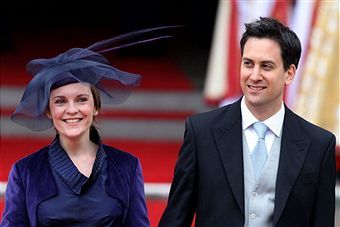 It’s odd how political leaders often address their parties in the clichéd
terms of soap operas’ most tortured romances. Ed Miliband pre-trailed speech to the Labour’s National Policy Forum in Wrexham is replete with protestations of having grown apart and the
need to listen and be more open with each other. “We cannot continue as we are,” he implores.
It’s odd how political leaders often address their parties in the clichéd
terms of soap operas’ most tortured romances. Ed Miliband pre-trailed speech to the Labour’s National Policy Forum in Wrexham is replete with protestations of having grown apart and the
need to listen and be more open with each other. “We cannot continue as we are,” he implores.
But there is some substance to Miliband’s rhetoric of reconnection. He has already announced his intention to appoint his own shadow cabinet, which caused some consternation among Labour’s more reactionary elements. In an interview with the Guardian, Miliband defends his decision on grounds that shadow ministers should not be “looking over their shoulders” worrying about the PLP. Loyalty must be to the leader, seems to be the message.
Elsewhere, Miliband is consensual. No doubt with one eye on dwindling party membership and funds, he wants to reinvigorate local party organisations and the “boring” annual conference. To this end, public petitions will be presented to policy makers to consider, councilors and prospective MPs will subscribe to a code of conduct on public engagement and local parties will be incentivised to increase their membership.
Conference will be enlivened by the participation of non-party members, charities and community groups – forcing the Labour movement to broaden its appeal, which has been an aim of John Cruddas and the like. The party executive is already striving towards this. Shadow cabinet ministers have been involved in away days in Manchester and Liverpool to encourage various unaffiliated organisations to participate in the conference. And secretary general Ray Collins has written to some Labour council leaders inviting them to attend meetings to explain how the conference will be of use to local organisations and businesses. The frequent references to ‘commercial opportunities’ hint at the party’s motivations, indicating perhaps that it wants to free itself from vassalage under the unions.
The most striking passage of Miliband’s interview with Guardian is that where he criticises the unions. He questions the forthcoming strikes, while being careful to endorse their grievances as legitimate.
“The most important thing for the unions is to get the public to understand what their argument is. I don’t think the argument has yet been got across on public sector pensions as to some of the injustices contained on what the government is doing. Personally I don’t think actually strike action is going to help win that argument and I think it inconveniences the public. I think strikes must always be the very last resort.”
This well poised detachment shows that Miliband has learnt from his mistake of associating himself so closely with the March Against the Cuts. All in all these changes suggest to me that Miliband thinks, like David Cameron did, that the best way to define himself is to redefine his party first.






Comments